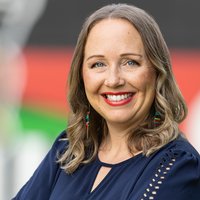Vacant Lot Acquisition Fund
Cities across the country have tried to find ways to clean up and improve vacant lots. Vacant lots have been related to increased crime rates, illegal dumping, and environmental hazards, which contribute to unsafe conditions in neighborhoods. In Indianapolis, the concentration of vacant properties is predominantly in neighborhoods where we have seen historical disinvestment and lack of resources. Because land is a precious resource in the growing in Indianapolis community, vacant lots represent a missed opportunity and a potential risk to the quality of life for those living in Indianapolis and its surrounding areas.
Urban agriculture is a proven way that cities have re-purposed vacant lots. This type of re-use provides “third” spaces for residents to come together, learn, generate income, access fresh foods for their families, improve environmental health and climate resilience, and ultimately beautify the neighborhood. While urban agriculture and small-scale farming already exist in Indianapolis, the wholesale and retail demand for locally grown food far exceeds the current production volume of local urban farms. One of the biggest challenges to scaling production to meet demand for urban farmers is access to land, particularly for Black urban farmers.
In response to this need, LISC Indianapolis launched the Vacant Lot Acquisition Fund Program. This pilot program provides funding to community-based organizations, community development corporations, and other similarly situated nonprofit organizations to assist farmers operating in urban areas, with a particular focus to assist Black farmers operating in urban areas who have lacked access to the capital needed to acquire land, in their efforts to stay and operate in their neighborhoods, expand their operations, and ultimately own their land. This will not only benefit the businesses operated by such farmers, but will also benefit the community through providing job opportunities, resident engagement, increasing the local production of nutritious fresh food available to residents, and beautifying the neighborhood.
Round 1 Partners:


Round 2 Partner RFP
The second round of the Vacant Lot Acquisition Fund Program will continue prioritizing Equitable Food Access Initiative (“EFAI”) communities.
FUNDING OVERVIEW
LISC Indianapolis will select one to two community-based organizations, community development corporations, or other similarly situated nonprofit organizations to receive up to $110,243 in total competitive grant awards. The anticipated grant period is February 2025 – March 2026.
ELIGIBILITY & SELECTION CRITERIA
This funding opportunity is open to community-based organizations, community development corporations, and other similarly situated nonprofit organizations either 1) led by a person of color or individual from historically disinvested and discriminated communities OR 2) primarily serving people of color or individuals from historically disinvested and discriminated communities. Applicants must demonstrate: Capacity to administer funds and manage grant activities and reporting At least 3-5 years of experience leading or supporting an effort to increase healthy food access Experience engaging residents with lived experience in decision-making processes A clear, realistic, and measurable project plan and budget to implement the Vacant Lot Acquisition Fund Program Willingness to regularly participate in bi-monthly Food Justice Collaborative meetings convened by LISC Indianapolis program staff Willingness to collaborate with LISC Indianapolis program staff on opportunities to share your work and the Vacant Lot Acquisition Fund Program’s impact During the proposal review phase, LISC Indianapolis program staff will closely review each applicant’s catchment area, responses to the narrative questions, and proposed project plan and budget.
TIMELINE
- Funding opportunity opens: December 5, 2024
- Proposal submission deadline: January 29, 2025 (by 5 p.m.)
- Proposal review period: January 30, 2025 – February 7, 2025
- Grant award notification: February 9, 2025
Before proceeding with the application, please read the full Application Guidelines.
Click here to access the RFP. Application Deadline: January 29, 2025
